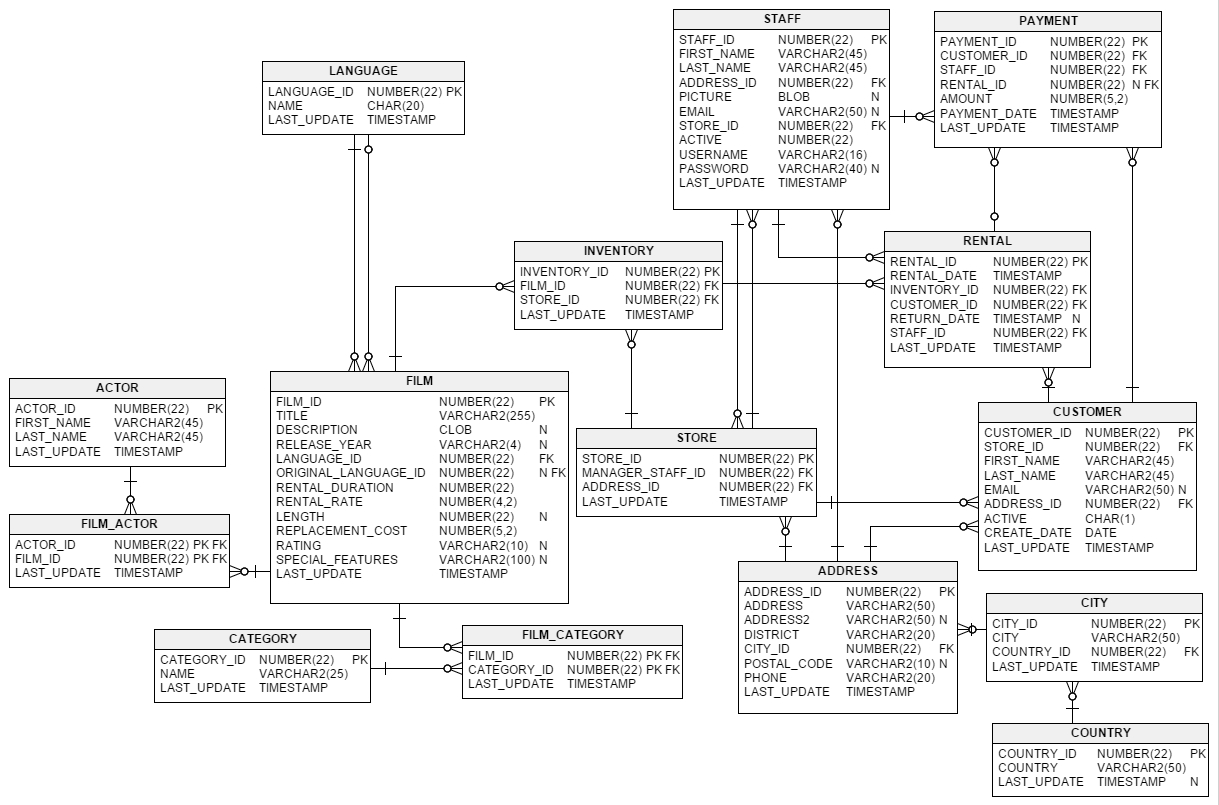The Sakila database is a nicely normalised database modelling a DVD rental store (for those of you old enough to remember what that is). Its design includes a few nice features:
- Many to many relationships
- Multiple paths between entities (e.g. film-inventory-rental-payment vs film-inventory-store-customer-payment) to practice joins
- Consistent naming of columns
- Primary keys are called
[tablename]_[id] - Foreign keys are called like their referenced primary key, if possible. This allows for using
JOIN .. USINGsyntax where supported - Relationship tables do not have any surrogate keys but use composite primary keys
- Every table has a
last_updateaudit column - A generated data set of a reasonable size is available
- Primary keys are called
With this database, we can try out some nice SQL queries, e.g. by using PostgreSQL syntax:
Actor with most films (ignoring ties)
SELECT first_name, last_name, count(*) films
FROM actor AS a
JOIN film_actor AS fa USING (actor_id)
GROUP BY actor_id, first_name, last_name
ORDER BY films DESC
LIMIT 1;Yields:
first_name last_name films
--------------------------------
GINA DEGENERES 42
Cumulative revenue of all stores
SELECT payment_date, amount, sum(amount) OVER (ORDER BY payment_date)
FROM (
SELECT CAST(payment_date AS DATE) AS payment_date, SUM(amount) AS amount
FROM payment
GROUP BY CAST(payment_date AS DATE)
) p
ORDER BY payment_date;Yields:
payment_date amount sum
-------------------------------------
2005-05-24 29.92 29.92
2005-05-25 573.63 603.55
2005-05-26 754.26 1357.81
2005-05-27 685.33 2043.14
2005-05-28 804.04 2847.18
2005-05-29 648.46 3495.64
2005-05-30 628.42 4124.06
2005-05-31 700.37 4824.43
2005-06-14 57.84 4882.27
2005-06-15 1376.52 6258.79
2005-06-16 1349.76 7608.55
2005-06-17 1332.75 8941.30
...
The Sakila example database was originally developed by Mike Hillyer of the MySQL AB documentation team. it was ported to other databases by DB Software Laboratory
License: BSD Copyright DB Software Laboratory http://www.etl-tools.com
